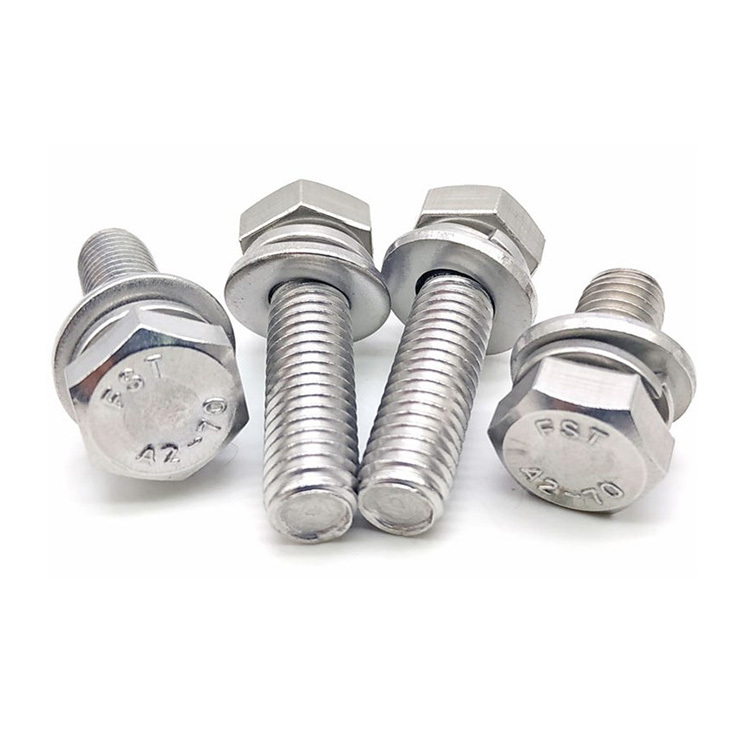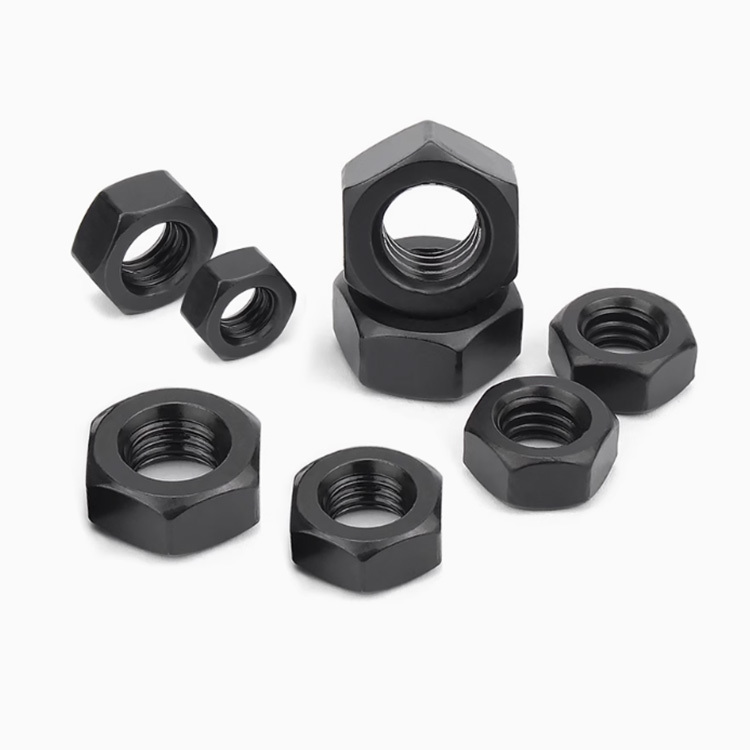How Stainless Steel Bolts Enhance the Performance of Industrial Components
Mar 03,2025
How Stainless Steel Bolts Enhance the Performance of Industrial Components
Table of Contents
1. Introduction to Stainless Steel Bolts
2. Key Benefits of Stainless Steel Bolts
2.1 Corrosion Resistance
2.2 Exceptional Strength
2.3 Thermal Stability
2.4 Aesthetic Appeal
3. Applications of Stainless Steel Bolts in Industry
How Stainless Steel Bolts Enhance the Performance of Industrial Components
Table of Contents
- 1. Introduction to Stainless Steel Bolts
- 2. Key Benefits of Stainless Steel Bolts
- 3. Applications of Stainless Steel Bolts in Industry
- 4. Types of Stainless Steel Bolts
- 5. Proper Installation Techniques for Stainless Steel Bolts
- 6. Maintenance and Care for Stainless Steel Bolts
- 7. Comparison with Other Materials
- 8. Conclusion
- 9. Frequently Asked Questions (FAQs)
1. Introduction to Stainless Steel Bolts
Stainless steel bolts are a crucial component in various industrial applications, playing a vital role in ensuring the integrity and performance of machinery and structures. As an essential fastening solution, these bolts are engineered to provide strength, durability, and resistance to environmental factors. In this article, we delve into the specifics of how stainless steel bolts can significantly enhance the performance of industrial components.
2. Key Benefits of Stainless Steel Bolts
Stainless steel bolts are renowned for their superior qualities, which make them an ideal choice for various industrial applications. Some of the key benefits include:
2.1 Corrosion Resistance
One of the most significant advantages of stainless steel bolts is their **corrosion resistance**. Unlike traditional steel fasteners, stainless steel contains chromium, which forms a protective oxide layer on the surface, preventing rust and deterioration. This property is especially beneficial in environments exposed to moisture, chemicals, and extreme weather conditions. By utilizing stainless steel bolts, industries can minimize maintenance costs and extend the lifespan of their equipment.
2.2 Exceptional Strength
Stainless steel bolts exhibit **exceptional tensile strength**, making them suitable for high-stress applications. They can withstand significant loads without deforming or breaking, ensuring the safety and reliability of structures and machinery. The high strength-to-weight ratio allows for lighter designs without compromising structural integrity. This feature is particularly advantageous in the aerospace and automotive industries, where performance and efficiency are paramount.
2.3 Thermal Stability
Stainless steel bolts demonstrate **thermal stability**, maintaining their mechanical properties under varying temperatures. This characteristic is essential for applications involving heat exposure, such as in manufacturing processes and power generation. The ability to retain strength and resist thermal expansion ensures that bolted connections remain secure, reducing the risk of failure in high-temperature environments.
2.4 Aesthetic Appeal
In addition to their functional advantages, stainless steel bolts offer an **aesthetic appeal** that is often sought after in visible applications. The sleek, polished appearance of stainless steel enhances the overall look of machinery and structural assemblies. This quality makes them an ideal choice for architectural projects and consumer-facing products, where presentation and visual appeal are important.
3. Applications of Stainless Steel Bolts in Industry
The versatility of stainless steel bolts allows them to be utilized across a wide range of industries. Their applications include:
- **Construction**: Used in building frameworks, bridges, and other structures requiring robust fastening solutions.
- **Automotive**: Essential in assembling components that endure high stress and exposure to varying environmental conditions.
- **Aerospace**: Critical for ensuring safety and performance in aircraft design, where reliability is non-negotiable.
- **Marine**: Perfect for boat and ship construction, as they resist saltwater corrosion and harsh marine environments.
- **Food Processing**: Employed in machinery that must meet stringent hygiene standards due to their non-reactive properties.
4. Types of Stainless Steel Bolts
Various types of stainless steel bolts cater to different application needs, allowing industries to select the most suitable fasteners for their projects.
4.1 Common Grades of Stainless Steel
Stainless steel bolts are available in several grades, including:
- **304 Stainless Steel**: General-purpose, corrosion-resistant bolts suitable for many applications.
- **316 Stainless Steel**: Offers superior corrosion resistance, particularly in marine environments.
- **410 Stainless Steel**: Known for its strength and used in applications that require resistance to wear and abrasion.
4.2 Custom Stainless Steel Bolt Solutions
Many manufacturers provide **custom stainless steel bolt solutions** tailored to specific industry requirements. Customization options may include thread size, length, and coating, enabling businesses to achieve optimal performance for their applications.
5. Proper Installation Techniques for Stainless Steel Bolts
To maximize the performance of stainless steel bolts, proper installation techniques are crucial. Key considerations include:
- **Torque Specifications**: Adhering to the manufacturer's torque specifications ensures that bolts are tightened adequately without over-stressing them.
- **Use of Lubricants**: Applying appropriate lubricants can reduce friction during installation, allowing for even distribution of tension and preventing galling.
- **Preventing Contamination**: Keeping the bolts clean and free from contaminants is essential to maintain their properties and performance.
6. Maintenance and Care for Stainless Steel Bolts
While stainless steel bolts are low-maintenance, regular inspections and care are advisable. Ensure that bolts remain free from debris, rust, and corrosion by periodically cleaning them. In corrosive environments, consider using additional protective coatings or sacrificial anodes to extend their lifespan.
7. Comparison with Other Materials
When compared to other materials, stainless steel bolts stand out for several reasons:
- **Steel vs. Stainless Steel**: Standard steel bolts are susceptible to rust and require frequent maintenance, while stainless steel bolts resist corrosion and require minimal upkeep.
- **Aluminum Bolts**: While lighter than stainless steel, aluminum bolts may not offer the same level of strength and durability, particularly in high-stress applications.
- **Plastic Fasteners**: Although plastic can be resistant to corrosion, it lacks the strength and temperature resistance necessary for many industrial applications.
8. Conclusion
In summary, stainless steel bolts significantly enhance the performance of industrial components through their exceptional properties, including corrosion resistance, strength, and thermal stability. Their versatility allows for applications in various sectors, ensuring safety and reliability across industries. By choosing stainless steel bolts, manufacturers can achieve long-lasting solutions that meet the demands of modern engineering.
9. Frequently Asked Questions (FAQs)
What are the main advantages of using stainless steel bolts in industrial applications?
Stainless steel bolts offer corrosion resistance, high strength, thermal stability, and aesthetic appeal, making them suitable for a variety of industrial applications.
How do I know which grade of stainless steel bolt to choose?
The choice of grade depends on the specific application requirements, including exposure to corrosive environments, load-bearing needs, and temperature conditions.
Are stainless steel bolts more expensive than traditional steel bolts?
Stainless steel bolts may have a higher initial cost than traditional steel bolts, but their longevity and reduced maintenance costs can lead to overall savings.
Can stainless steel bolts be used in marine applications?
Yes, stainless steel bolts, particularly those made from 316 grade, are ideal for marine applications due to their superior corrosion resistance in saltwater environments.
What maintenance is required for stainless steel bolts?
Regular inspections and cleaning are recommended to ensure the bolts remain free from debris and corrosion, although they generally require minimal maintenance compared to other materials.
TAG:
PREVIOUS:
Contact Us
Address
Yongnian District, Handan City, Hebei Province, China



